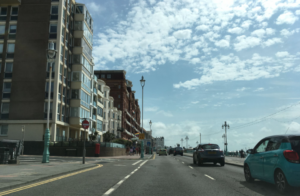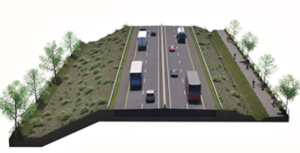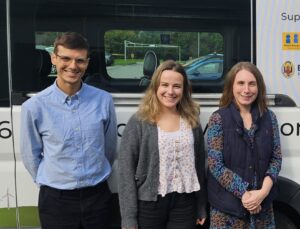Leicester City Council has launched a consultation on its Transport Plan that sets out transport and travel priorities for the city for the next 15 years.
The draft Leicester Transport Plan has been drawn up, focusing on the key themes and identifying schemes which the city council proposes to deliver between now and 2036.
The plan focuses on three main areas: developing connected main transport corridors and stations, improving transport within local neighbourhoods, and managing demand for car use.
It sets out the city’s transport ambitions over the next 15 years, including:
- Zero emission vehicles in use throughout the city, including buses, trains, taxis, fleet vehicles and freight.
- Many more people working regularly from home and more responsible use of cars for necessary trips only.
- Public transport such as bus and rail to be the first choice for longer journeys for most people, along with cycling or electric bikes.
- Active transport, cycling or walking becoming the first choice for shorter journeys for most people.
- A thriving, accessible city centre that is easy to move around in, and which supports economic growth in the whole city.
- Healthier neighbourhoods, aiming for all services to be available by walking or cycling within 15 minutes, with cleaner air and a safer local environment.
- A rush-hour free city, gradually managing traffic to reduce peak-time demands.
Key projects would include:
- A new ‘Greenlines’ cross-city public transport network, using high-quality zero-emission vehicles, replacing existing diesel buses. A first phase has already seen the introduction of new electric buses on the city’s three park and ride sites. Further phases include proposed electric tram-like vehicles to serve main employment areas, universities and hospitals, as well as retail and leisure areas.
- Active Travel – the expansion of existing infrastructure to create a top-quality citywide network of safe and attractive walking and cycling routes to meet the growing demand across Leicester. It will build on the Connecting Leicester work already carried out to create extensive walking and cycling routes, and the launch of the Santander Cycles Leicester scheme, which includes 500 electric bikes for hire from 50 locations across the city centre.
- Leicester Railway Station – a proposed £200m major regeneration project including new high-quality passenger facilities, a spacious new main concourse, new shops and food businesses in the covered area off London Road, together with a new entrance and landscaped public square forming an impressive gateway to the city centre. The scheme would also support the development of adjacent land for business office space to encourage more inward investment and create more local jobs.
Information and views from the consultation will help inform the final Leicester Transport Plan, which could be approved in early 2022.
The draft plans also outline the initial thinking on the potential role of a future workplace parking levy, alongside other funding opportunities, which would support delivery of the overall transport plan. Money raised by such a scheme would help finance the key projects listed above.
A formal consultation on a detailed workplace parking levy business case is expected later this year, if Leicester City Council decides to proceed with the idea following this initial stage of consultation.
The consultation runs until September 17, and includes an online version of the draft local transport plan, a workplace parking levy summary document and other background papers, along with a questionnaire for comments. A printed version of the plan will be available on request for people who don’t have internet access.
Leicester City Mayor Peter Soulsby said: “The draft local transport plan is our chance to set out our goals for the next 15 years and to focus on what measures are vital for balancing the city’s growth, prosperity and recovery from lockdown restrictions, with the pressing environmental concerns we face now and into the future.
“Much work has already been completed or is underway to make the city more accessible on foot, by bicycle and by public transport, including the ongoing delivery of our Connecting Leicester cycleway programme and construction of the new St Margaret’s Bus Station. By improving connections between key locations, people should not need to depend on car use to get around the city. We want to build on those key ideas of better connectivity, healthy neighbourhoods and managing car use.”
Leicester’s deputy city mayor responsible for transport and the environment, Cllr Adam Clarke, added: “The Leicester Transport Plan can play a key role in tackling our climate emergency and air quality challenges, to make the city a greener, cleaner and healthier place.
“As part of this consultation we will also be asking people for their views on how a workplace parking levy could work.
“This isn’t a formal consultation on a workplace parking levy at this stage, but clearly the role of any such scheme needs to be considered as part of the other transport proposals we are hoping to deliver over the next 15 years, which could be funded through a sustained source of levy income.
“The draft local transport plan consultation is a chance for everyone to look at our proposals and give their views, so we can take them into consideration when planning for the environmental and transport challenges that lay in the years ahead.”
























